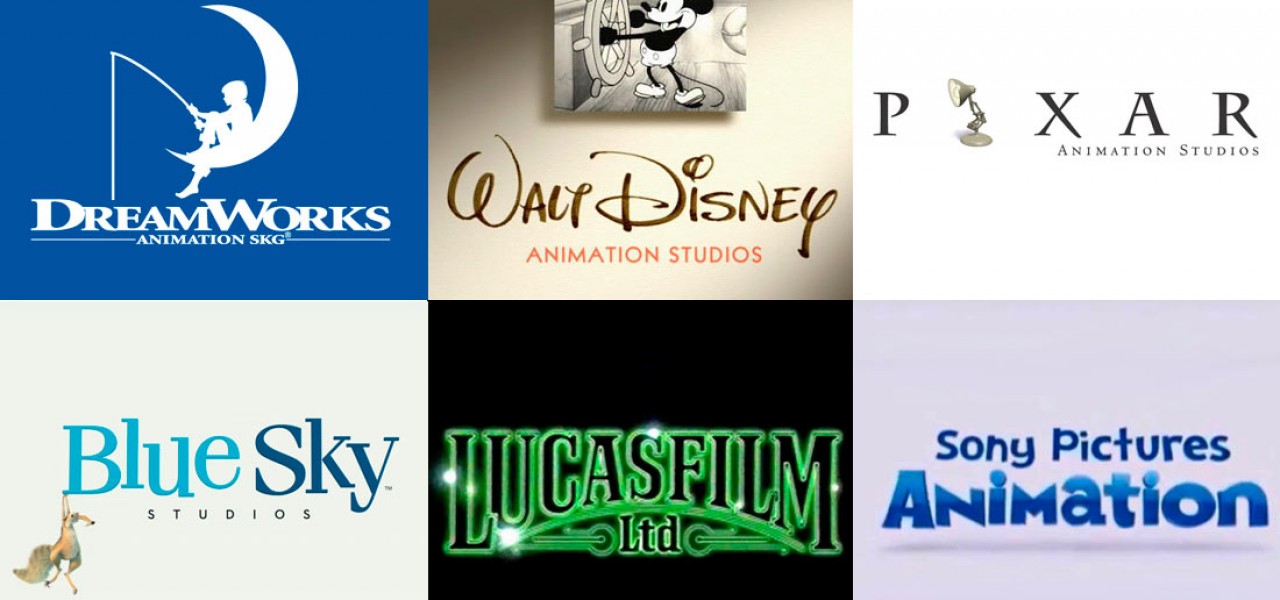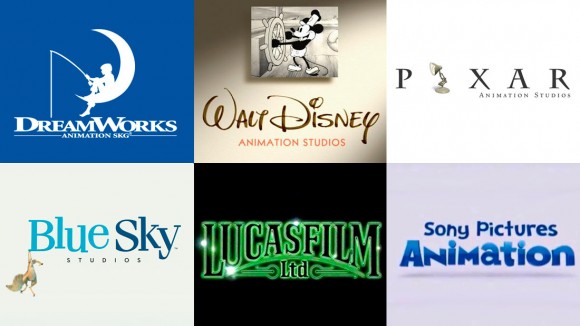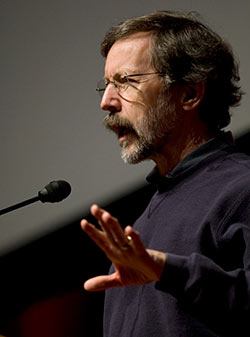

What Is The Animation Wage-Fixing Lawsuit? An Explainer for the Community
2015’s biggest legal story for the animation community was undoubtedly the ongoing lawsuit known as In re: Animation Workers Antitrust Litigation. This is a class action involving the biggest feature animation studios, thousands of animation industry employees, a potentially large payout for the employees, and huge ramifications for the entire industry. The start of the new year seems like a good time to recap all the facts, the allegations, and where the case is today.
What is this all about and why should I care?
In September 2014, plaintiffs Robert Nitsch, a senior character effects artist at DreamWorks Animation until 2011; Georgia Cano, a digital and lighting artist at Rhythm & Hues until 2009; and David Wentworth, a production engineer and computer graphics supervisor at ImageMovers Digital, together filed a class-action lawsuit against several animation studios.
The plaintiffs claimed that the defendant studios conspired to restrict competition by exchanging sensitive compensation information, fixing compensation ranges of their employees, and most crucially, refraining from solicitation of each other’s employees, in violation of federal antitrust law and the California Business and Professions Code.
The plaintiffs claim that the defendants’ actions injured the plaintiffs and members of the class by “lowering their compensation and depriving them of free and fair competition in the market for their services.”
Further, the plaintiffs claim that the studios fraudulently concealed their conspiracy, preventing the plaintiffs from filing their complaint in a timely manner. Federal antitrust law prohibits such actions as restrictions on competition. Plaintiffs seek damages that could run into multi-millions, interest, attorney’s fees, and a permanent injunction.
Who are the defendants that are accused of wrongdoing?
The accused studios are:
- Blue Sky Studios, Inc.
- DreamWorks Animation SKG, Inc.
- Lucasfilm Ltd., LLC
- Pixar Animation Studios
- Sony Pictures Animation, Inc.
- Sony Pictures Imageworks, Inc.
- The Walt Disney Company
- Two Pic Mc LLC (formerly ImageMovers Digital LLC)
Which employees at those studios would be represented in the class action lawsuit?
Because this is a class action, the people who are suing the studios are doing so on behalf of other people who have similar claims. The suit seeks to potentially represent thousands of employees, specifically “all persons who worked at any time from 2004 to the present for Pixar, Lucasfilm, DreamWorks Animation, Walt Disney Animation Studios, Walt Disney Feature Animation, Blue Sky Studios, Digital Domain, ImageMovers Digital, Sony Pictures Animation or Sony Pictures Imageworks in the United States. Excluded from the Class are officers, directors, senior executives and personnel in the human resources and recruiting departments of the Defendants.”
When did artists realize they were being taken advantage of?
Beginning in 2009, the Antitrust Division of the U.S. Justice Department began investigating the hiring practices of several high-tech companies, including Google, Apple, Intuit, Intel, and Adobe Systems. The investigation ensnared Pixar and Lucasfilm as well, and lead to the discovery of written agreements among the defendants not to cold call each other’s employees and not to engage in bidding wars for employees. They also had agreed to notify each other whenever making an employeement offer to each others’ employees. Although the case ended up settling for hundreds of millions of dollars in April 2014, it was the discovery of emails revealed in that case that first convinced Nitsch, Cano, and Wentworth that there might be a case against the major animation studios as well as high-tech companies, and they filed suit in September 2014.
But do the artists have enough evidence to prove their case?
The case is being tried in U.S. District Court in the Northern District of California, San Jose Division, and the judge in the case, Judge Lucy Koh, has already ruled that the plaintiffs have enough evidence to defeat the studios’ attempt to dismiss the case and are moving toward a trial. Among the evidence the plaintiffs claim to be able to offer are numerous emails between the studios that reference the agreement not to compete for employees. This correspondence includes:
- a September 29, 2004 email from Pixar vice president of human resources Lori McAdams that refers to a “gentleman’s agreement” among “ILM, Sony, Blue Sky, etc….not to directly solicit/poach from their employee pool;”
- emails from early 2007 from McAdams to Sony Pictures Imageworks, Disney, ILM, DreamWorks, and Blue Sky, referring to daily discussions among themselves;
- a February 14, 2007 email from Lori McAdams to human resources personnel at DreamWorks, Sony, Disney, and ILM seeking the “base salary range” for a studio position;
- a 2007 email from DreamWorks’ head of compensation admitting to “shar[ing] general comp information (ranges, practices)” with other studios in order to “ask for that kind of information ourselves when we need it.”
- a 2009 email from Industrial Light & Magic recruiter Lori Beck stating that ILM should not pursue a potential employee then employed at Sony ImageMovers because of their gentleman’s agreement.
- deposition testimony from Sharon Coker, one-time Industrial Light & Magic, Disney, and ImageMovers human resources honcho, that the gentleman’s agreement among the studios was never written down.
- an internal Lucasfilm document urging that questions about anti-solicitation agreements be made over the phone: “If you see an email forward…to one of our lawyers.”
Much of this evidence seems to offer proof of an agreement among the studios to suppress competition for employees. The plaintiffs will also attempt to prove that the studios fraudulently concealed this illegal restraint on competition with statements made by recruiters and human resources personnel that the employee compensation packages they offered to potential employees were their “best offer,” or were “competitive” with other studios, without revealing that the studios had colluded to limit the competition among themselves. A 2007 email from Ed Catmull seeks to blame the construction of a daycare for the small salary bumps Pixar employees received in the wake of the 2006 box office smash Cars.
Could current Disney Animation Studios and Pixar president Ed Catmull, really be involved in all of this?

Not only involved, but it looks like Catmull was one of the scheme’s leaders. Remember, the conspiracy allegedly started when Lucasfilm first sold Pixar to Steve Jobs. The companies allegedly agreed not to pursue each other’s employees beginning then, and Catmull, a brilliant computer scientist who pioneered the development of computer animation, who was employed by Lucasfilm at the time, became president at Pixar. But even as the new animation studio grew from tiny start-up to became the dominant force in feature animation, Catmull apparently failed to allow his outsized success change his business practices. The plaintiffs have substantial evidence implicating Catmull:
- a February 18, 2004 email from Pixar President Ed Catmull to Steve Jobs explaining that the anti-solicitation arrangement “worked quite well;”
- a January 14, 2007 email from Catmull to then-Disney chairman Dick Cook, stating, “we have an agreement with Dreamworks [sic] not to actively pursue each other’s employees;”
- a March 2007 email from Catmull to a contract recruiter at DreamWorks, in which Catmull wrote, “[W]e have had an agreement with Dreamworks not to actively pursue each others employees [sic];”
- testimony from the earlier technology case in which Catmull admitted that Steve Jobs and DreamWorks head Jeffrey Katzenberg agreed not to “go after each other;”
Additional evidence suggests Catmull was practically obsessed with controlling costs:
- in a June 2004 email from Lucasfilm then-president Jim Morris to Catmull, Morris wrote, “I know you are adamant about keeping a lid on rising labor costs;”
- testimony from Catmull under oath admitted to his fear that “messing up the pay structure” would lead to “very high” compensation;
- additionally, Catmull told Disney Chairman Dick Cook, after Disney purchased Pixar, that companies offering employees “a substantial salary increase” will “seriously mess up the pay structure.”
Catmull even took an active role in entangling his rival studios in the alleged conspiracy. In 2004, Catmull flew to Los Angeles to discuss with Sony executives an agreement “where neither of us let recruiters approach the other,” and in 2007 met with ImageMovers founder Steve Starkey to insist “how important it is that we not have a hiring war.”
What do the defendant studios have to say for themselves?
The studios have so far denied all of the charges, alleging that the plaintiffs have mischaracterized certain facts. They’ve also asserted various affirmative defenses, including the claim that the employees that might be included in the class action signed waivers concerning their employment that released their employer from liability for actions taken concerning their employment, and that the employees also agreed to arbitration in the case of a dispute relating to their employment. Time will tell how judge and jury look upon such defenses.
What is the current status of the case?
Currently, the parties to the case are in the middle of discovery, in which documents and other information which could bear on the outcome of the case is given to the other side. The court will have a class certification hearing in May 2016, in which the court is expected to approve or disapprove of the class on behalf of whom the plaintiffs filed suit.
Discovery is scheduled to continue until mid-October of 2016. Thereafter, experts retained by the two side will prepare their reports and rebut their opponents reports, and motions for summary judgment — in which the parties will argue that their side should win without a trial — not due until February 2017. If the case survives that, then a trial will follow thereafter, possibly in the late spring or summer of 2017.
This fight is not ending any time soon.
